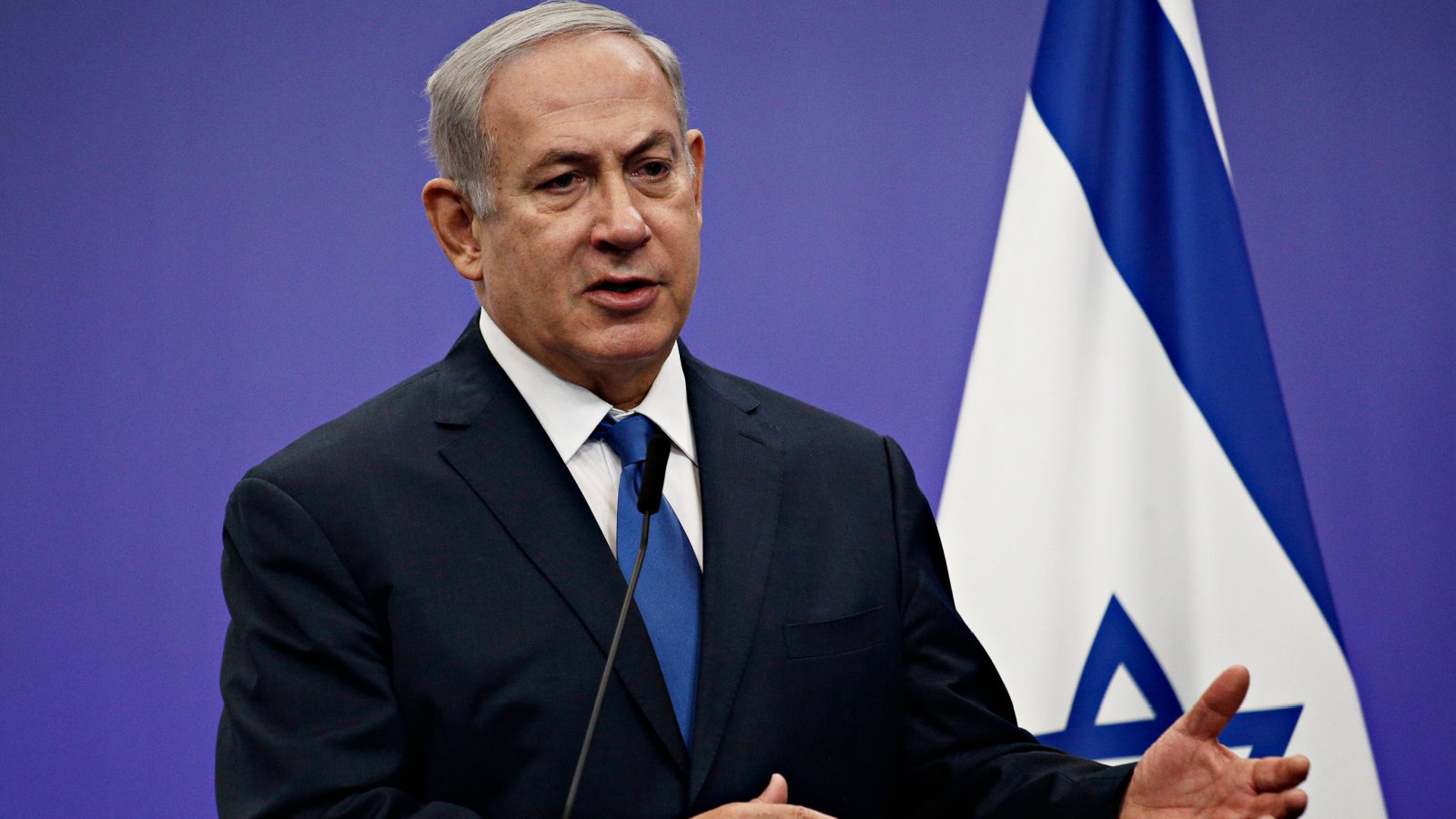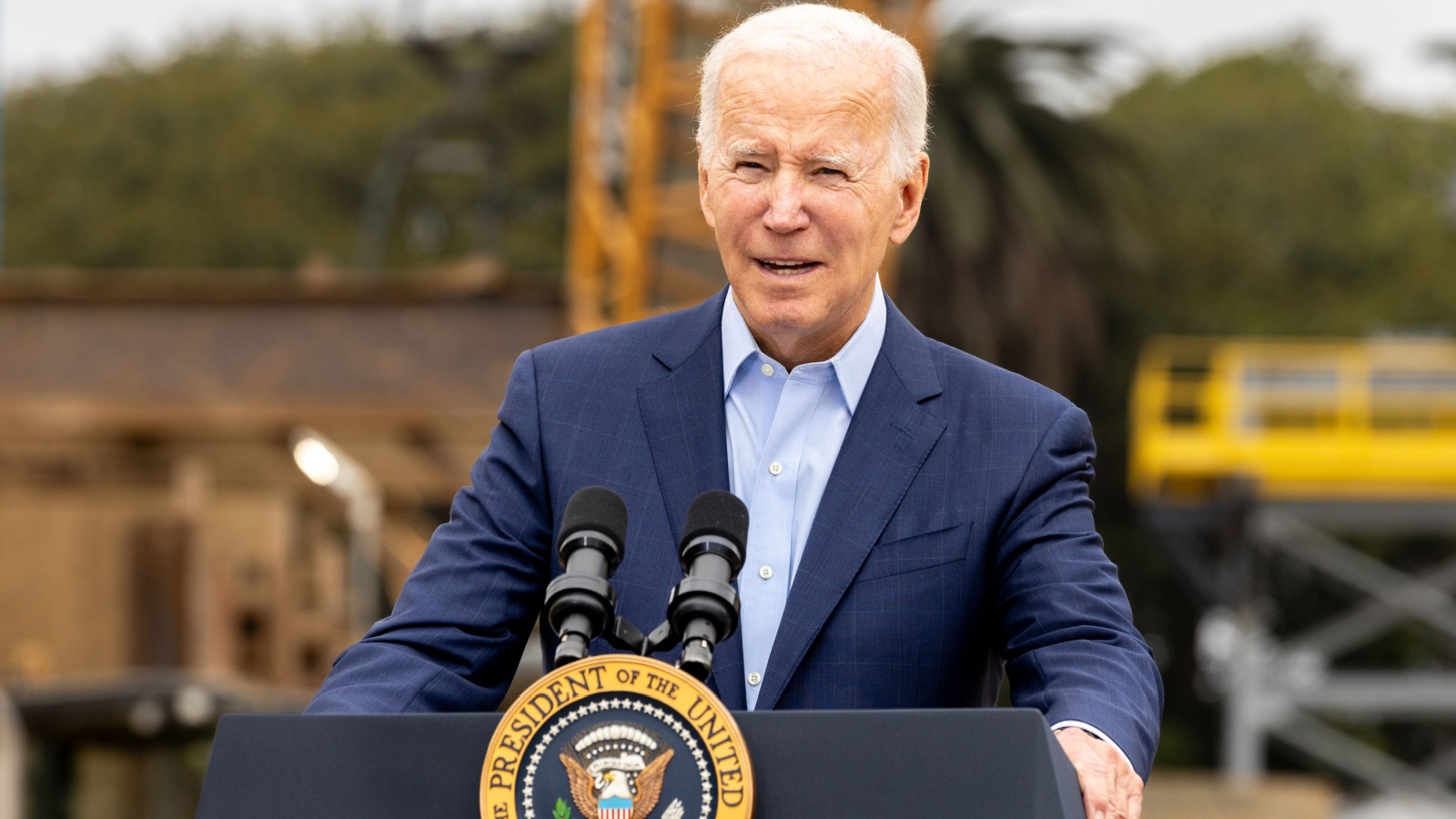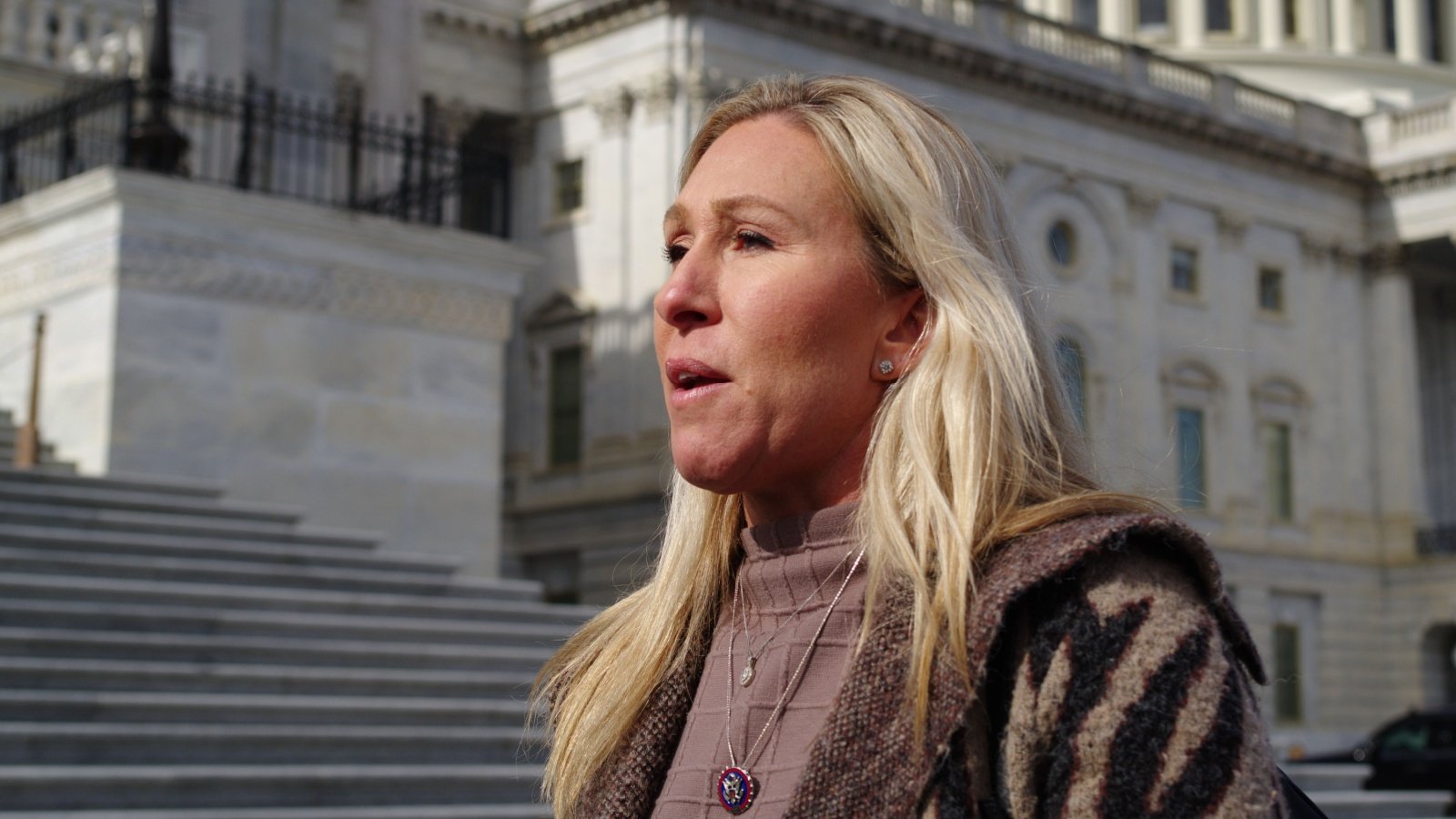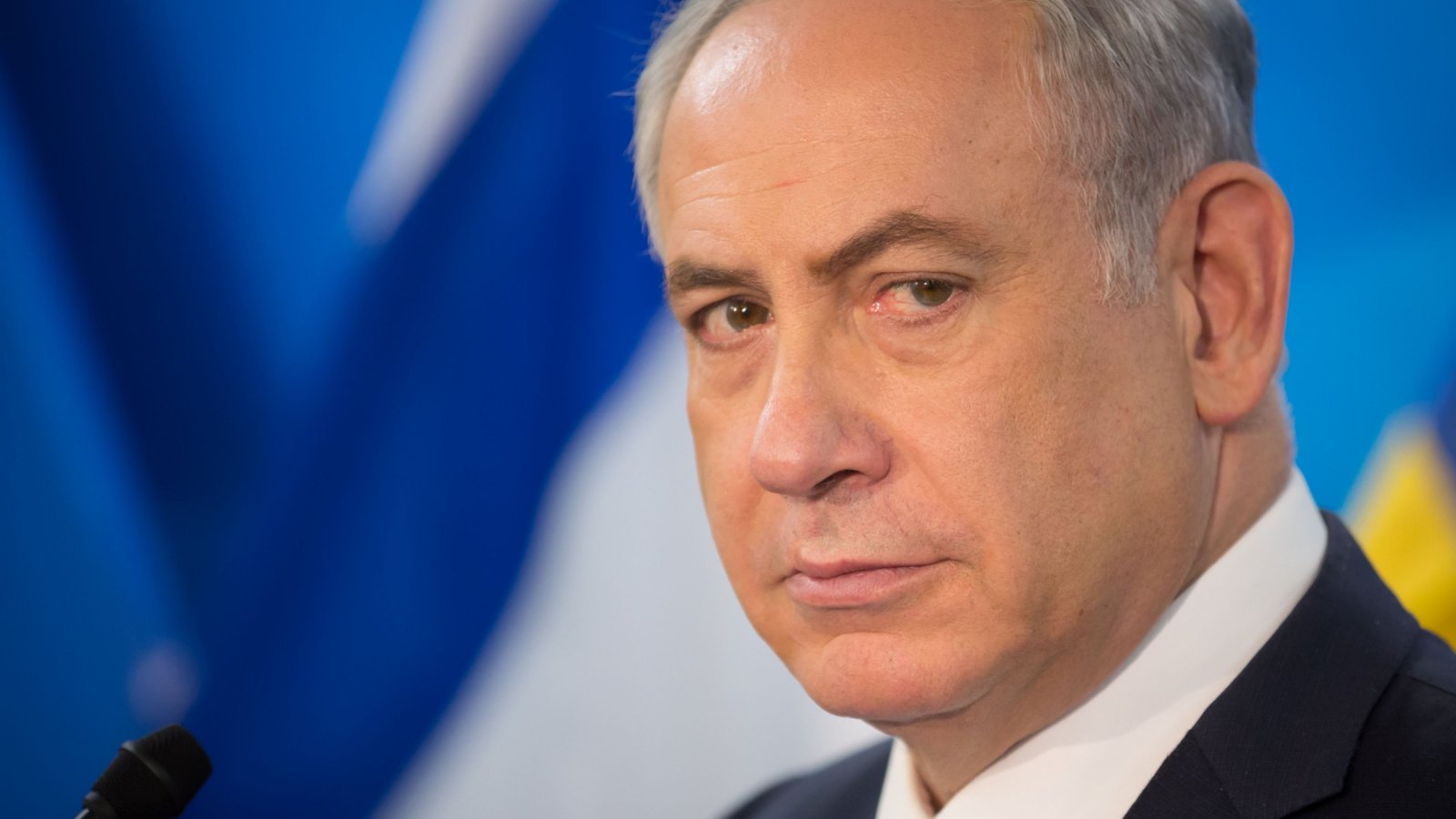Speaker Mike Johnson’s latest gambit raises high stakes with a $95 billion aid package on the line with critical foreign aid allocations. His move could redefine U.S. global interactions during a time of increasing international tensions.
High Stakes in the House

Speaker Mike Johnson made a bold move on the House floor this Saturday, pushing through a massive $95 billion aid package that earmarked over $60 billion for Ukraine. This daring political maneuver not only supports U.S. allies but also places his own career and reputation at risk.
Global Aid Distribution

The extensive aid package allocates $26 billion to Israel and an impressive $60.8 billion to Ukraine, alongside $8 billion aimed at the Indo-Pacific region. These funds are set to bolster both military defenses and humanitarian efforts across these troubled areas.
Complex Legislation

Three key aid bills were voted on, accompanied by a fourth bill that might lead to a TikTok ban and aims to repurpose seized Russian assets to aid Ukraine. This complex bundle of legislation highlights a pivotal moment in international relations and tech policy.
Controversial Support for Ukraine

The spotlight was on the Ukraine aid bill, the most contentious bill of the day, which passed with a decisive 311 to 112 vote. Speaker Johnson’s advocacy for the bill was a gamble that could have ended his political career if things had gone differently.
Debate Over Military Aid

After the vote, Speaker Johnson articulated a poignant rationale for the aid, suggesting a preference for sending ammunition rather than troops to conflict zones. His statement highlighted a strategic choice designed to minimize American casualties.
Aid to Israel Moves Forward

Despite some opposition, the bill to provide aid to Israel sailed through with a strong majority of 366 votes to 58. The debate around this bill was notably influenced by progressive calls for linking the aid to a ceasefire agreement.
Presidential Endorsement

President Joe Biden has wholeheartedly endorsed the newly passed foreign aid package, celebrating it as a testament to American leadership and a vital component of national security. He stressed the urgency of the situation with Israel and Ukraine, urging the Senate to expedite the process to bolster Ukraine’s defense capabilities amidst ongoing conflicts.
CIA’s Stark Warning

Amid these developments, CIA Director Bill Burns has issued a grim forecast, suggesting that without additional U.S. support, Ukraine could face severe setbacks in its conflict with Russia by year’s end. This stark warning underlines the critical nature of the aid package voted on over the weekend.
Political Challenges Ahead

Speaker Mike Johnson faces significant political threats from within his own party, notably from Rep. Marjorie Taylor Greene and others, who are agitating for his removal over the aid decisions. Johnson, however, remains undeterred, ready to handle whatever comes his way without concern for the potential motion to vacate his position.
Resolute Amid Opposition

Despite potential upheavals, Johnson’s stance is firm; he’s prepared to see the motion through and accept the outcomes, whatever they may be. His resilience highlights the divisive nature of the aid package and the complex dynamics at play within the House.
Additional GOP Criticism

Rep. Paul Gosar has voiced his displeasure with the package, particularly criticizing the lack of border security measures in the funding for Ukraine. His stance represents a growing faction within the Republican Party that is deeply skeptical of the aid’s direction and purpose.
Detailed Aid Breakdown

The Ukraine aid bill is particularly set up to strengthen U.S. and allied defenses, featuring $23 billion to refill depleted American stockpiles used in Russia. Additionally, $11 billion is designated for military operations in the region with another $14 billion set aside for advanced weaponry.
Oversight and Economic Assistance

Accountability isn’t overlooked, with $26 million allocated for monitoring the equipment provided to Ukraine. Two substantial economic aid packages, amounting to nearly $9.43 billion in loans, are also part of the package, showcasing the extensive financial support being extended.
Unsuccessful Amendment

An attempt by Rep. Victoria Spartz to strip humanitarian aid from the Ukraine bill was overwhelmingly defeated, reflecting the House’s commitment to comprehensive aid that includes humanitarian efforts.
Robust Support for Israel

The security package for Israel is equally robust, providing $4 billion for the Iron Dome and additional billions for other military needs. This is part of a broader $9 billion initiative that also includes humanitarian aid for Palestinians, illustrating a balanced approach to regional stability.
Wide-Ranging Legislation

A multifaceted bill, set to impact several areas including tech and international finance, proposes stringent new rules for TikTok and utilizes seized Russian assets to support Ukraine.
Historical Reflections

As the House prepared to vote, Chairman Michael McCaul invoked the weight of history, challenging his colleagues to consider their legacy in the context of wartime leadership. His dramatic speech underscored the gravity of the decisions at hand.








Der maximale Verde casino bonus beträgt in jedem Fall nicht
mehr als 300€, und die Freispiele werden in Slots zu 0,2€
gutgeschrieben. Gibt es einen verde casino aktionscode ohne einzahlung?
Gerade bei dringenden Fragen zu Zahlungen oder dem verde casino bonus lohnt sich der
direkte Draht. Zahlungen und Abhebungen verde casino welche spiele mit bonusgeld Auch die verde casino bonuses
sind oft an Bedingungen geknüpft, die im Kleingedruckten unangenehm sein können. Der Willkommensbonus folgt den möglichen Freispielen ohne
Einzahlung beziehungsweise nachdem Sie vom Verde Casino 25
Euro Startguthaben erhalten haben.
Diese Sondercodes bieten oft deutlich höhere Bonusbeträge oder zusätzliche Freispiele, die nicht
im Standardangebot enthalten sind. Verde Casino Promo Codes kommen mit spezifischen Bonusbedingungen, die verstanden werden müssen, um
die Boni erfolgreich freispielen zu können. Das Willkommenspaket ist besonders spielerfreundlich
gestaltet, da die Mindesteinzahlung für die erste
und dritte Stufe nur 10 Euro beträgt. Einzahlungsboni kommen oft mit zusätzlichen Vorteilen wie Freispielen für
beliebte Slot-Spiele. Zusätzlich lohnt es sich, zwischen Einzahlungsboni, Freispielen und VIP-Deals zu variieren, um langfristig Vorteile zu
sichern. Wichtig ist, nur verifizierte Stellen zu nutzen, denn nur dann ist ein Verde Casino promo code ohne einzahlung auch wirklich gültig.
Ein Bonus ohne Einzahlung kann ein Startguthaben in einer bestimmten Höhe oder
auch eine Promotion mit Freispielen sein. Bitte spielen Sie
verantwortungsvoll. Sein Fokus liegt auf No Deposit Boni, Freispielen und Auszahlungstests.
Mit dem Verde Casino 25 Euro Bonus Code können Sie hauptsächlich Slots wie Book of
Dead, Starburst oder Gonzo’s Quest spielen. Mehr über Bestandskundenboni erfahren Sie auf Verde Casino Aktionscode Bestandskunden. Ein Verde Casino No Deposit Bonus Code ist ein spezieller Verde Casino Activation Code, der es Ihnen ermöglicht,
Bonusgeld oder Freispiele ohne Einzahlung zu erhalten.
The Australian Communications and Media Authority (ACMA)
is crucial in issuing gaming licenses, setting
rules, and enforcing player sanctions. The legal landscape of online gambling in Australia is
complex, with regulations at both state and federal levels.
Cryptocurrency casinos are becoming popular in Australia due
to their fast transactions and privacy features.
ThunderPick Casino provides 100 free spins upon the first deposit, making it a
competitive offer.
Are you searching for trustworthy online casinos for real money, where you can play and potentially cash out big?
In the USA, the two most popular types of online casinos are sweepstakes casinos and
real money sites. The top online casino sites offer a variety of games, generous bonuses, and secure platforms.
Under the Gambling Act of 2003, online casinos based in New Zealand are prohibited.
The best online casinos support secure payment methods like debit cards,
e-wallets (Skrill, Neteller), and mobile-friendly services like Apple Pay.
PAGCOR’s governance includes a detailed
list of online casinos licensed by PAGCOR. It ensures that every casino operating under
its jurisdiction, from land-based establishments to the
legitimate PAGCOR online casinos, adheres to stringent standards of fairness,
security, and reliability.
This means the site follows all the rules for fair play, responsible gaming, and player protection — with regular audits to keep everything above board.🔐
Safe as a Bank VaultFrom SSL encryption to secure payment gateways, Lucky Ones uses the same tech trusted by
global banks. That’s why Lucky Ones Casino is fully licensed and operates under strict international standards,
so you can focus on the fun while your data and money stay safe.🎓 Licensed & LegitLucky Ones is officially licensed by Curacao eGaming, one of the most recognised
authorities in the online casino world. When it comes to online gambling,
security isn’t optional — it’s everything.
From small deposits to big withdrawals, top pokies to fast payouts — Lucky Ones really puts
the player first.Still curious? That’s double the playtime and a whole lot more chances to win — right from the start.📋 How to claim it?
Every session here is built around your behavior, preferences, and
pace, whether you’re into daily jackpot trackers,
real-money tournaments, or fast crypto payouts. At Lucky
ones, we are committed to fostering a safe and responsible gaming environment.
Join Lucky ones today to experience an unmatched blend
of fun and winning opportunities. It is also licensed
and regulated by reputable authorities, ensuring that high standards of fairness and transparency
are maintained. The casino employs state-of-the-art SSL encryption technology to safeguard all financial
transactions and protect personal information against unauthorised access.
Yes, Lucky ones places a high emphasis on player safety and security.
Premier online gaming with 14,000+ games,
from classic slots to live dealer tables. Access slots, classic
tables, and live dealer games directly from your mobile
device with smooth transactions and dedicated support.
Our casino offers a premium selection of games, including slots, poker,
and live dealer options, ensuring endless entertainment for enthusiasts.
For a more realistic casino experience, try the live dealer games,
where professional dealers host games in real-time.
Lucky ones offers a fantastic gaming experience with a wide array
of slots and table games. Dive into a world of over 5000 games, live casino tables,
and quick sports betting—perfectly adapted for smooth play on Android, iOS,
or any browser.
online blackjack paypal
References:
hmljobs.com
online betting with paypal winnersbet
References:
https://workfind.in